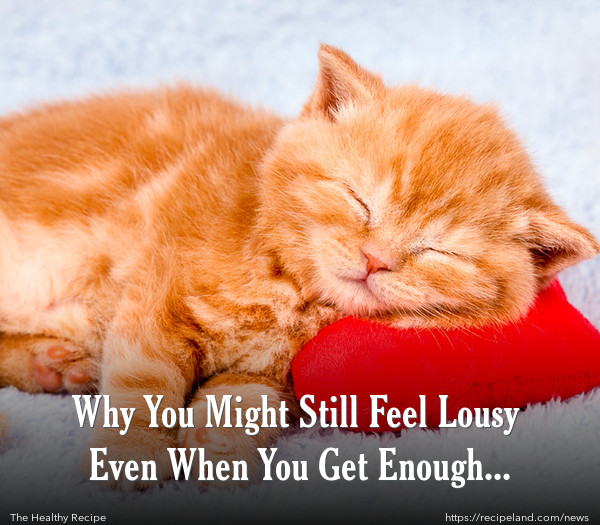You might wake up thrilled to realize that you got a full 8 hours of sleep last night. Then, your next thought may involve wondering why you don’t feel perky and refreshed.
Here are 6 reasons that you might not be getting the best rest possible, and what to do about them.
1. You are reading your Kindle before bed.
Those people who make it a habit to read before bed are doing a great thing by relaxing and shifting gears. However, if you are spending your reading time using a Kindle or other electronic device, you may be disrupting your sleep more than you realize.
The blue light that comes from the Kindle or similar devices, like iPads, phones, etc., may be suppressing the production of melatonin, which helps regulate our sleep cycles.
For better results, make sure you are putting away all of your electronic devices an hour and a half before you are going to hit the sheets.
2. You have bad sleep posture.
If you are waking up feeling sore, especially in your lower back, you may be sleeping on your side for the whole night. This can cause major flexion in the hips, according to Benjamin Domb, MD, founder of the American Hip Institute.
Considering that more than half of all Americans report sleeping in this position, it is important to know how to improve it. Putting a pillow between your knees is a common fix, because it can help to properly align your hips.
Domb states, “Hip injuries are some of the most common, yet trickiest, sleep injuries because the pain from the injury often shows itself in a different part of the body—like in the lower back.”
3. You’re using the wrong pillow.
Even though your super fluffy pillow feels nice, it might not be the best pillow to sleep on. Shawn Stevenson, BS, FDN, founder of the Advance Integrative Health Alliance and author of the 2016 book, Sleep Smarter: 21 Essential Strategies to Sleep Your Way to a Better Body, Better Health, and Bigger Success, states, “Sleeping with your head propped up pulls your spine out of alignment—it’s like walking around for 8 hours during the day with your neck tilted down.”
4. You grind your teeth.
Those who grind their teeth at night may find that they are waking up with headaches. Massaging your jaw before and after sleeping, and applying gentle pressure and/or a warm, damp cloth can help improve symptoms. If problems persist, you might want to consult with your dentist, who can give you a mouth guard to help prevent you from grinding your teeth at night.
5. You drink before bed.
While having a drink can help you fall asleep more quickly because of the sedative effects of alcohol, drinking before bed may disrupt your normal sleep schedule.
A study conducted in Australia in 2015 found that those who consumed a glass of orange juice with vodka just before bed demonstrated increased alpha brain activity, which indicated that they were not getting enough sleep of the restorative kind.
Women are more vulnerable to the effects of alcohol and the related sleep disruptions because they metabolize it more quickly. While the occasional glass of wine or booze won’t cause harm, be sure you don’t drink it right before bed and limit yourself to one drink.
6. You may have sleep apnea.
Research has shown that about half of all adult women may have sleep apnea. Clark explains sleep apnea as a condition when “patients briefly stop breathing multiple times through the night, which leads to poor sleep quality.” The incidence of sleep apnea increases as women approach the age of menopause and begin to go through premenopause.
Many women assume they are waking because of hot flashes, but it might actually be sleep apnea. This can leave you feeling quite fatigued in the morning, even when you think you’ve had plenty of sleep. It is important to consult with your doctor and get a sleep study if you suspect sleep apnea.
Mild cases are often treated with weight loss programs and avoiding alcohol, while more severe cases may require the use of a CPAP machine to provide oxygen pressure that keeps the airway open.
Getting enough rest means more than just getting the right number of hours of sleep. If you are waking up feeling fatigued, check with your doctor or try some of these lifestyle changes to see if you feel any better.










Comments